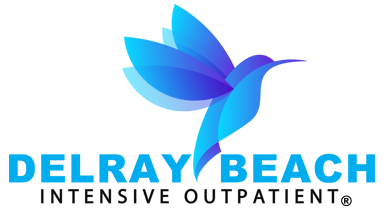Dealing with a loved one’s addiction is never easy. Family members of someone with an addiction often have the difficult task of convincing their family member to seek treatment for their addictive behavior, a process that can be incredibly difficult because the person struggling may be reluctant to accept that help.
However, though substance use disorders are an incredibly serious form of mental illness, being able to have a successful intervention with your family member with or without professional help can be essential to your loved one’s progress.
Being as informed as possible about drug addiction and drug rehab will help you to convey the necessity of getting help to your loved one and to ease their anxiety about getting treatment, so we have provided a brief introduction to the subject and rounded up some reputable resources you can use to explore it further below.
What Should Your Loved One Expect In Treatment For Drug Addiction?
While different treatment programs will be somewhat different in terms of the specific type of addiction treatment they offer, we can give you a general idea of what your addicted family member may expect to experience once they begin treatment.
For instance, since withdrawal from severe alcohol abuse can sometimes cause a medical emergency, your loved one may need to attend a drug rehab specializing in detoxification before they can move on to a more comprehensive treatment program.
Then, one important part of the recovery process at most addiction treatment facilities is individual counseling. In this part of the treatment process, a mental health professional will meet with your addicted family member one on one to explore and address the complex causes of their addiction, which can often include co occurring disorders that are fueling your loved one’s destructive behavior.
The documented link between substance abuse and mental health disorders means that overcoming addiction often starts with addressing these disorders, which will likely resolve some of the triggers of your loved one’s drug problem.
Rehab programs also often incorporate support groups, which can play an important role for recovering drug addicts by giving them the opportunity to connect to others who are also in the process of overcoming substance abuse.

A support group can help those with alcohol and drug addiction to feel less isolated by showing them that addiction affects many people from all walks of life, thus helping them to feel less ashamed of their past mistakes and more empowered to combat their addictive behaviors.
Along with support groups and other programming offered at in-person treatment facilities, some treatment programs also offer online support groups and therapy options, with some intensive outpatient programs even offered entirely online.
Support groups and individual therapy may also teach patients healthy living strategies that can help them to break free of their substance abuse. For instance, drug rehab may provide advice on healthy self care options that patients can use instead of resorting to alcohol and drug addiction, teaching them more sustainable and more fulfilling steps that they can take to manage stress and relieve negative emotions.
Family and friends may also be interested in the fact that substance abuse treatment will often involve family therapy. Family therapy sessions will explore the family dynamics that may have contributed to an individual’s drug addiction, teaching patients and loved ones how to develop and maintain the healthy boundaries that can help family relationships thrive.
It can be important to go into family therapy informed about drug addiction, so you may want to review some of the following resources on substance use if your loved one is currently considering rehab centers.
Using The Mental Health Services Administration And Similar Resources
One place that you may want to turn is to the Substance Abuse and Mental Health Services Administration, a government agency with a stated mission to “reduce the impact of substance abuse and mental illness on America’s communities.” For instance, their site https://findtreatment.gov/ offers informative resources dedicated to helping loved ones of people with substance use disorders to understand their family members’ addiction.
You can also find resources explaining the different types of treatment options you may come across in your search for appropriate addiction treatment programs for your loved one, as well as that help explain how the process of paying for treatment programs works for families with and without insurance.
The good news, though, is that health insurance providers are required by the Mental Health Parity and Addiction Equity Act to treat drug and alcohol addiction and other mental disorders similarly to the way that they would treat any physical illness of a similar seriousness.
As long as medical reviewers associated with your health insurance are persuaded that the definition of substance use disorder as defined in the Diagnostic and Statistical Manual Of Mental Disorders applies to your loved one, it shouldn’t be difficult to get them to sign off on appropriate treatment options to help them overcome addiction. The site also contains a searchable database of treatment centers, which you can use to search for local treatment facilities that may be right for your loved one.
Other important resources can be found at sites run by other reputable organizations, such as the National Institute On Drug Abuse. The National Institute On Drug Abuse is an important source of information about the effects of specific drugs and the latest research on alcohol and other substance use disorders and the most effective forms of addiction medicine.
Similarly, the website of the American Psychiatric Association provides an easy to understand guide to substance use disorders that may be useful to share with other family members.
Get Help For Drug Abuse At Delray Beach IOP
Whether you are worried about a loved one’s addiction or struggling with drug or alcohol addiction yourself, don’t hesitate to reach out to Delray Beach Intensive Outpatient about our addiction treatment options.
Our treatment facility offers top notch recovery support for those in the early stages of breaking free from alcohol abuse or drug abuse. You can learn more about the programs that we offer here, as well as on our blog, which offers in-depth information about many of our essential therapies.
If you have any additional questions, or if you are ready to seek support now, call us today at 833.637.0338 or contact us online here. There’s no better place to start your search for a smart recovery today than at Delray Beach Intensive Outpatient.
